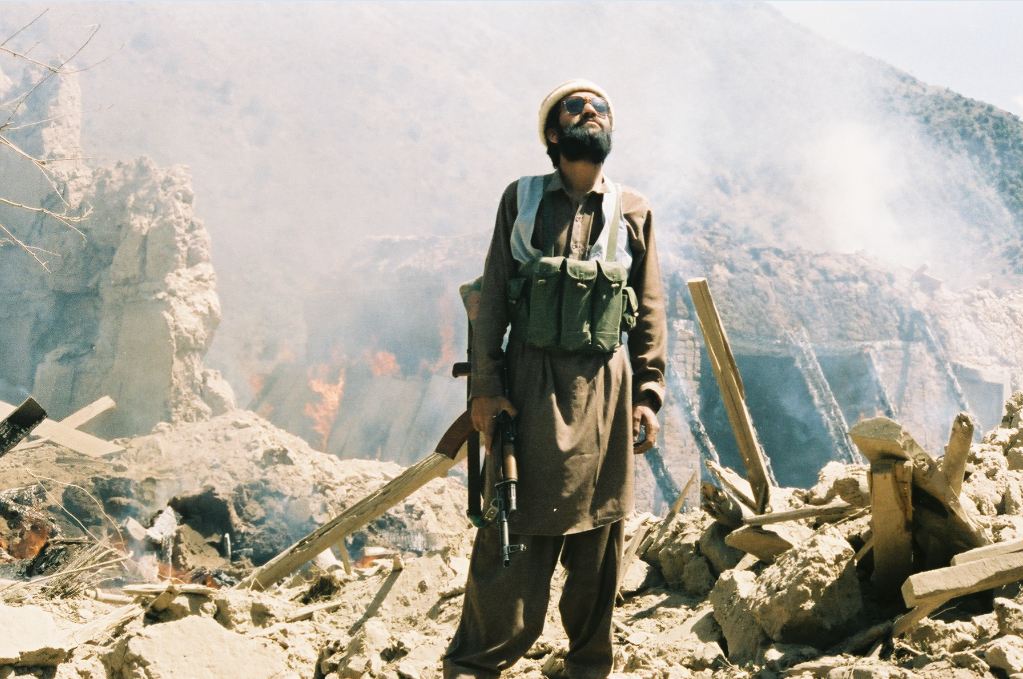
by Alexander Nicoll | 18 Apr 2023 | Economy, Educators' Catalog, Europe, Nationalism
Brexit gave the British people independence from Europe. But can the value of national sovereignty be quantified and is it worth more than economic stability? A line of trucks wait at Dover to cross the British Channel into Europe post-Brexit in December 2020. AP...
ND correspondent Alexander Nicoll dives into the post-Brexit world in this article, assessing the balancing act between national sovereignty and strong economic growth. He gets into the past, present and future Britain faces as it navigates its independence from the European Union.
Exercise: In an exercise to teach students synthesis skills, have students create a political cartoon illustrating the central tension in this article — the balance between national sovereignty and economic growth in Britain post-Brexit. How students choose to portray this tension is up to them, but they should consider including: a meaningful caption, public figures, symbols, dialogue, etc. It may be worthwhile to show the class examples of successful political cartoons to inspire ideas.

by News Decoder | 23 Feb 2023 | Decoders, Educators' Catalog, Nationalism, Ukraine
Our correspondents and youth voices tackled many facets of this complicated conflict. We give out the breadth of our Ukraine coverage to help you sort it out. People in Brovary, Ukraine on 19 February 2023 kneel at a funeral procession for the body of a man killed...
As the world marks the one-year anniversary of the Russian invasion of Ukraine, we’ve put together a compilation of News Decoder coverage of the war this year. Help your students decode this complicated news event with a look at the conflict through the eyes of refugees, expats, international law and neighboring countries.
Exercise: Begin with a class discussion around the unifying question, “How might war affect countries beyond combat on the battlefield?” Students might come up with answers like: food rationing, being forced to relocate etc. Then, divide your class into four groups, each corresponding to one subheading of the article compilation (i.e. Ukrainians united, Russia responds, Refugee havens and Beyond Ukraine’s borders). In each group, have students choose one article to read together from their respective subcategory, taking notes as they go. As students read, have them synthesize the main idea of the article to share with the rest of the class. Have 1-2 spokespeople from each group share out after all students finish reading, framing their contributions around the initial class question.

by Tom Heneghan | 19 Jan 2023 | Europe, Nationalism, Religion, Ukraine
Orthodox Christians find themselves in a tug of war in Ukraine. When you celebrate Christmas is political and the language of prayer belies national loyalties. Clerics conduct a service in St.Volodymyr Cathedral on Orthodox Christmas eve in Kyiv, Ukraine, Friday, Jan....

by Helen Womack | 1 Mar 2022 | Europe, Government, Human Rights, Nationalism, Politics
As leader of Hungary, Viktor Orbán has thumbed his nose at EU values. Elections in April will test whether Hungarians want his “illiberal democracy.” An old tenement block in the Budapest district of Angyalföld, which reflects the split in Hungarian...

by Helen Womack | 12 Oct 2021 | Europe, Government, Human Rights, Nationalism, Politics
Hungary opened the first cracks in Soviet Communism. Now, the world awaits its elections pitting a right-wing populist leader against a liberal opposition. A street performer in front of a statue commemorating the “Lads of Pest” — youngsters who took up...

by Barry Moody | 7 Jan 2021 | Europe, Government, Nationalism
Despite a Brexit deal with the EU, Boris Johnson’s popularity as UK leader has plunged as COVID-19 wreaks havoc, with his foibles on display. British Prime Minister Boris Johnson departs 10 Downing Street for parliament in London, 30 December 2020. (EPA-EFE/ANDY...

by Helen Womack | 20 Oct 2020 | Nationalism, Politics
There were huge hopes for democracy at the end of the Cold War. But the West has squandered its leadership, leaving the world rudderless. A Muscovite woman leaves a food store with empty shelves in downtown Moscow, 28 October 1991. (AP Photo/Yuri Romanov) Below are...

by Rashad Mammadov | 22 Aug 2020 | China, Human Rights, Nationalism
The Uighurs are not the only ethnic minority in China. Beijing’s repressive tactics reflect fears a separatist movement could threaten the state. Uighurs in Hotan, northwest China’s Xinjiang Uighur Autonomous Region, 6 April 2008 (AP Photo/Eugene Hoshiko) Last...

by Stuart Grudgings | 23 Mar 2020 | Economy, Environment, Health and Wellness, Nationalism, Technology
The coronavirus has turned life upside down for billions of people around the world. It’s bound to have a lasting impact once the pandemic subsides. Hikers maintain distance at Vista View Point, Los Angeles, 20 March 2020. (AP Photo/Chris Pizzello) The...

by Ben Barber | 27 Sep 2019 | Americas, Asia, Economy, Middle East, Nationalism
When the Cold War ended, many thought international relations had entered a new era. Now, resurgent nationalism is fanning old animosities. Indian Hindu nationalists at a training camp in Ahmadabad, India, 1 June 2019 (AP Photo/Ajit Solanki) After the collapse of the...










